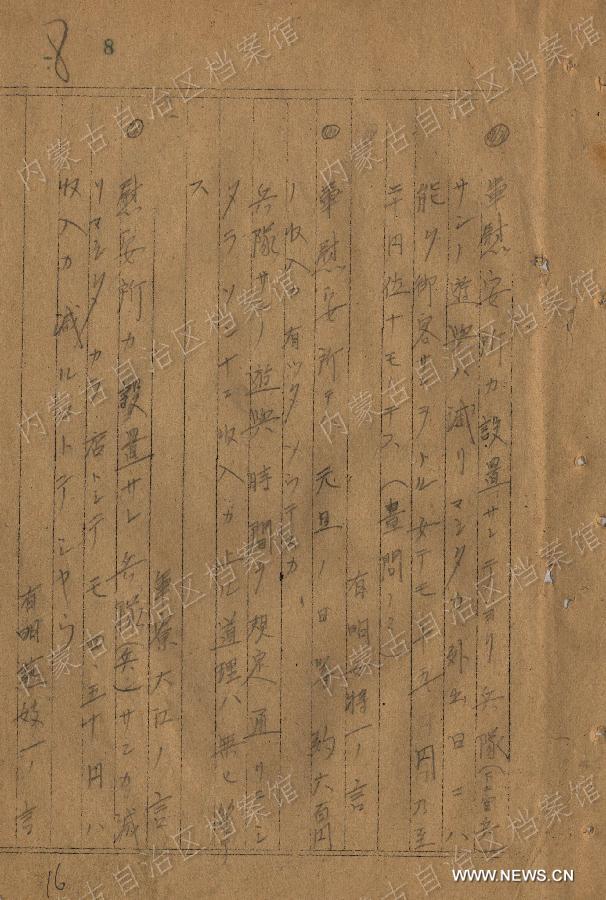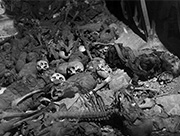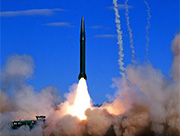

 |
| Photo released on Aug. 16, 2015 by the State Archives Administration of China shows a Japanese military report on the situation of military comfort facilities. A series of historical reports and personal letters, published by China's State Archives Administration on Sunday, has presented new evidence about the Imperial Japanese Army's war crimes in enslavement of "comfort women." (Xinhua) |
BEIJING, Aug. 16 -- A series of historical reports and personal letters, published by China's State Archives Administration on Sunday, has presented new evidence about the Imperial Japanese Army's war crimes in enslavement of "comfort women."
In a letter written on Feb. 1 1941 by Hideo Tomura, a soldier stationed in Kaifeng, "the special living conditions in a comfort station managed by the army" was recorded. It said "comfort women" moved with the troops.
Another document provided by Jilin Provincial Archives reflected the living conditions and state of mind of a young Japanese soldier who hoped to keep his virginity, but lowered his self-esteem in the army, and went to seek pleasure with Korean "comfort women" at the military field comfort station, ultimately suffering from venereal disease.
The released documents also included Japanese military reports which summarized the situation of military comfort facilities, including the number of Japanese troops and comfort women.
In one report, dated Feb. 19, 1938, Shigeru Oki, Commander of the Japanese Military Police Brigade for Central China, said the Japanese equipped their aggression forces with "comfort women" in proportion to the soldiers: 25,000 Japanese troops were stationed in Nanjing then, and 141 comfort women were equipped, or one"comfort woman" for 178 soldiers.
 |
Day|Week

 China in 1930s through the lens of a German pilot
China in 1930s through the lens of a German pilot Photos of Chinese forced labors working for Japan revealed
Photos of Chinese forced labors working for Japan revealed Striking moments of missile launching
Striking moments of missile launching Beauties give cheongsam show on 2,000-meter-high cliff
Beauties give cheongsam show on 2,000-meter-high cliff The striking moments of Chinese battleship firing
The striking moments of Chinese battleship firing Chinese people go crazy about the swimming champion Ning Zetao
Chinese people go crazy about the swimming champion Ning Zetao PLA type 96A tanks race in "Tank biathlon" in Moscow
PLA type 96A tanks race in "Tank biathlon" in Moscow Final of 2015 Miss Weihai Tourism concludes
Final of 2015 Miss Weihai Tourism concludes